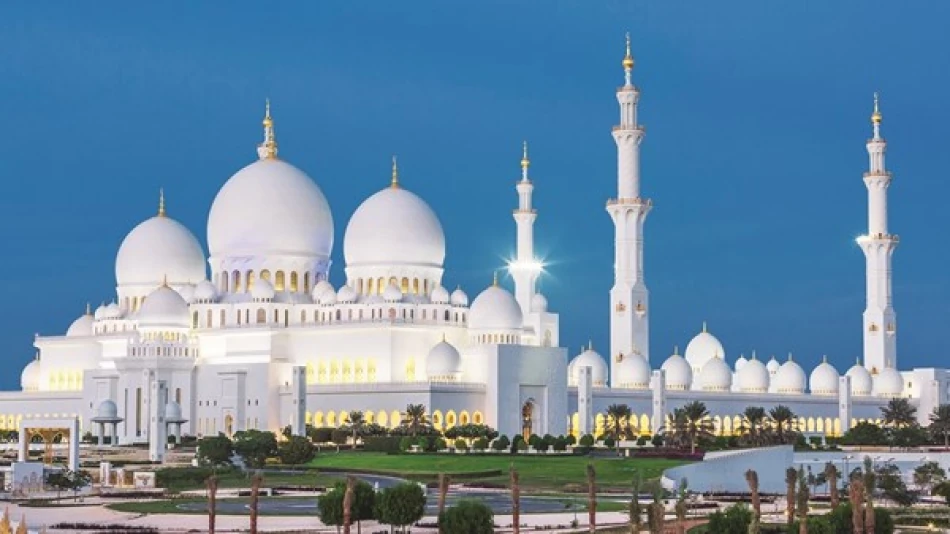
Discover the Architectural Marvel: Sheikh Zayed Grand Mosque, the Top Attraction in the Middle East
Sheikh Zayed Grand Mosque Claims Middle East's Top Tourism Spot in Global Rankings
Abu Dhabi's Sheikh Zayed Grand Mosque has secured the number one position among Middle Eastern attractions and eighth place globally in TripAdvisor's 2025 top landmarks report, reinforcing the UAE's strategy to diversify its economy through cultural tourism and positioning itself as a bridge between East and West.
A Monument That Transcends Religious Boundaries
The recognition comes after TripAdvisor analyzed over 8 million landmarks worldwide, highlighting the mosque's dual role as both a religious center and cultural beacon. This achievement underscores how architectural marvels can serve multiple purposes in modern tourism economies—attracting visitors regardless of their religious background while maintaining their spiritual significance.
The mosque's success reflects a broader trend where countries leverage iconic religious and cultural sites to boost their tourism sectors. Unlike purely commercial attractions, such landmarks offer authentic cultural experiences that international visitors increasingly seek in an era of overtourism at conventional destinations.
Strategic Tourism Positioning in a Competitive Market
Regional Leadership Consolidation
By claiming the top Middle Eastern spot, the mosque outperformed established regional competitors including Jordan's Petra, Turkey's Hagia Sophia, and Saudi Arabia's expanding religious tourism sites. This ranking arrives as Gulf states intensify their competition for tourism dollars, with Saudi Arabia's Vision 2030 and Qatar's post-World Cup tourism push creating unprecedented regional rivalry.
Economic Impact Beyond Numbers
The mosque's global eighth-place ranking delivers significant economic value beyond bragging rights. Tourism industry analysts estimate that top-10 global landmark status can increase visitor numbers by 15-25% annually, translating to substantial revenue for Abu Dhabi's hospitality and retail sectors.
More importantly, the recognition supports the UAE's broader economic diversification goals as oil revenues become less predictable. Cultural tourism offers higher per-visitor spending compared to traditional beach or shopping tourism, with international visitors to religious and cultural sites typically staying longer and exploring multiple destinations within a country.
The Architecture of Soft Power
The mosque's international appeal demonstrates how architectural grandeur can serve as soft power diplomacy. Its design incorporates elements from various Islamic traditions while maintaining accessibility to non-Muslim visitors—a delicate balance that few religious sites achieve successfully.
This approach mirrors successful cultural tourism strategies in countries like Spain, where religious monuments attract millions of secular tourists annually, or India, where the Taj Mahal transcends its original purpose to become a universal symbol of beauty.
Implications for Regional Tourism Strategy
The ranking validates the UAE's investment in cultural infrastructure over the past two decades. While neighboring countries focus heavily on mega-projects and futuristic attractions, the mosque's success suggests that authentic cultural experiences remain irreplaceable in the global tourism market.
For other Middle Eastern nations, this achievement offers a template for leveraging existing cultural and religious assets. Rather than competing solely on luxury or novelty, countries can differentiate themselves through authentic cultural narratives that resonate with diverse international audiences.
The mosque's consistent performance in global rankings also indicates that sustainable tourism growth often comes from deepening the appeal of existing attractions rather than constantly building new ones—a lesson particularly relevant as regional governments balance tourism ambitions with fiscal responsibility.
Most Viewed News

 Layla Al Mansoori
Layla Al Mansoori






